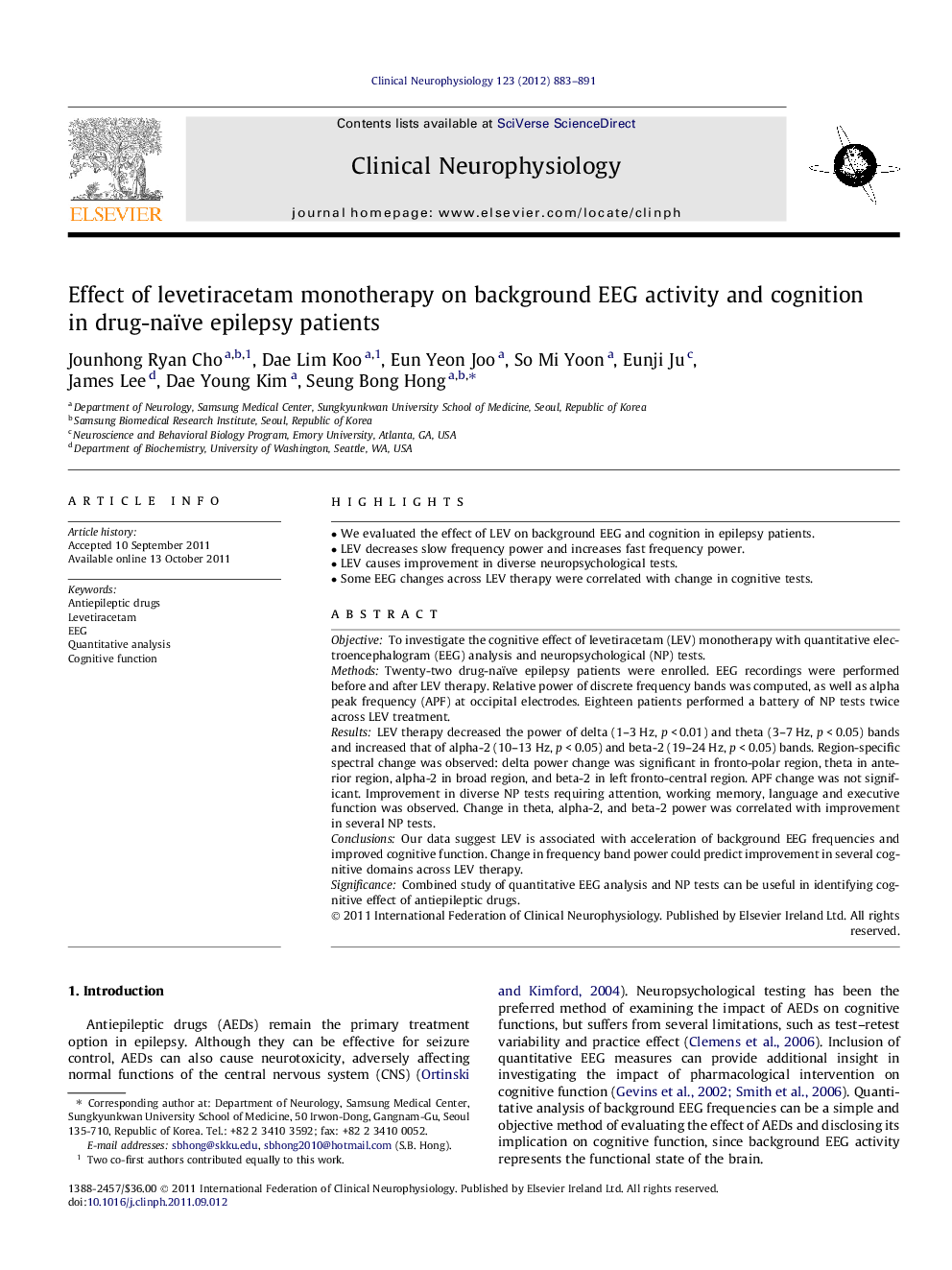| Article ID | Journal | Published Year | Pages | File Type |
|---|---|---|---|---|
| 3045281 | Clinical Neurophysiology | 2012 | 9 Pages |
ObjectiveTo investigate the cognitive effect of levetiracetam (LEV) monotherapy with quantitative electroencephalogram (EEG) analysis and neuropsychological (NP) tests.MethodsTwenty-two drug-naïve epilepsy patients were enrolled. EEG recordings were performed before and after LEV therapy. Relative power of discrete frequency bands was computed, as well as alpha peak frequency (APF) at occipital electrodes. Eighteen patients performed a battery of NP tests twice across LEV treatment.ResultsLEV therapy decreased the power of delta (1–3 Hz, p < 0.01) and theta (3–7 Hz, p < 0.05) bands and increased that of alpha-2 (10–13 Hz, p < 0.05) and beta-2 (19–24 Hz, p < 0.05) bands. Region-specific spectral change was observed: delta power change was significant in fronto-polar region, theta in anterior region, alpha-2 in broad region, and beta-2 in left fronto-central region. APF change was not significant. Improvement in diverse NP tests requiring attention, working memory, language and executive function was observed. Change in theta, alpha-2, and beta-2 power was correlated with improvement in several NP tests.ConclusionsOur data suggest LEV is associated with acceleration of background EEG frequencies and improved cognitive function. Change in frequency band power could predict improvement in several cognitive domains across LEV therapy.SignificanceCombined study of quantitative EEG analysis and NP tests can be useful in identifying cognitive effect of antiepileptic drugs.
► We evaluated the effect of LEV on background EEG and cognition in epilepsy patients. ► LEV decreases slow frequency power and increases fast frequency power. ► LEV causes improvement in diverse neuropsychological tests. ► Some EEG changes across LEV therapy were correlated with change in cognitive tests.
